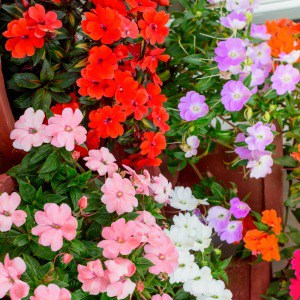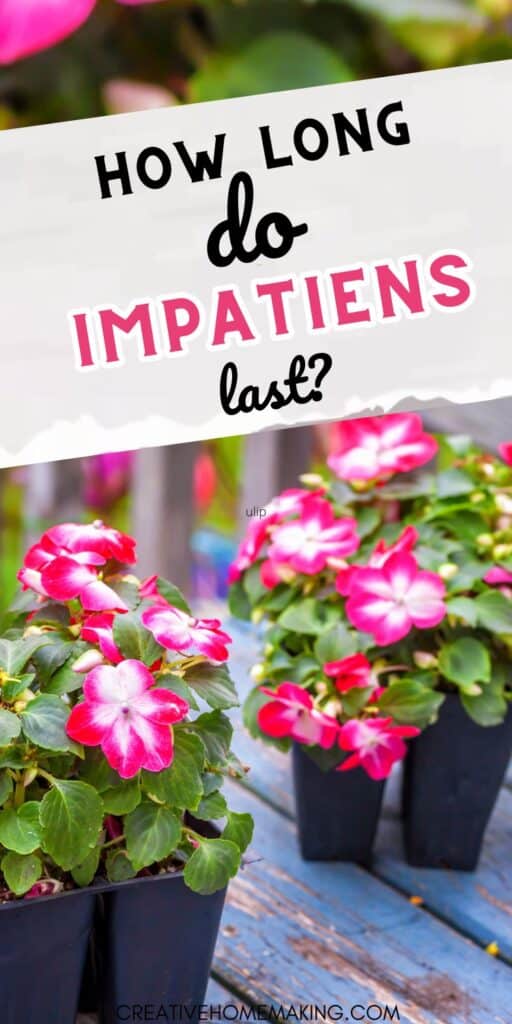Impatiens are a popular choice for gardeners and plant enthusiasts due to their vibrant colors and easy-to-care-for nature. However, if you’re new to gardening or simply curious about the lifespan of these plants, you may be wondering: how long do impatiens last?
This post may contain affiliate links.
The answer to this question largely depends on a few factors, such as the specific type of impatiens, the growing conditions, and the care provided. In general, impatiens can live for one to two years, with some varieties lasting longer than others.
For example, New Guinea impatiens are known to have a longer lifespan than traditional garden impatiens.
To ensure the longevity of your impatiens, it’s important to provide them with adequate water, sunlight, and nutrients. Avoid overwatering or letting the soil dry out completely, as this can harm the plant.
Additionally, be sure to fertilize them regularly and prune them as needed to promote healthy growth. By following these tips, you can enjoy your impatiens for as long as possible.
Understanding Impatiens
Related Article: What to Plant in April: A Guide to Spring Gardening
Impatiens Lifespan
Impatiens are a popular choice for gardeners due to their vibrant colors and ability to thrive in shady areas. The lifespan of impatiens varies depending on the type and growing conditions.
Common varieties typically last for one growing season and will need to be replanted the following year. New Guinea impatiens can last for multiple seasons if they are well-cared for and protected from frost. Sunpatiens can also be grown as perennials in warmer climates.
Proper care can help extend the lifespan of impatiens. They prefer moist, well-drained soil and should be watered regularly. Fertilizer can also help promote healthy growth and longer blooming periods.
Planting and Growing Conditions for Impatiens
When it comes to planting and growing impatiens, there are a few important factors to keep in mind. Here are some tips to help you create the best growing conditions,
Impatiens prefer well-drained soil that is rich in organic matter. If your soil is heavy or clay-like, you may want to amend it with compost or other organic matter to improve drainage and fertility. A pH level between 6.0 and 7.5 is ideal for impatiens.
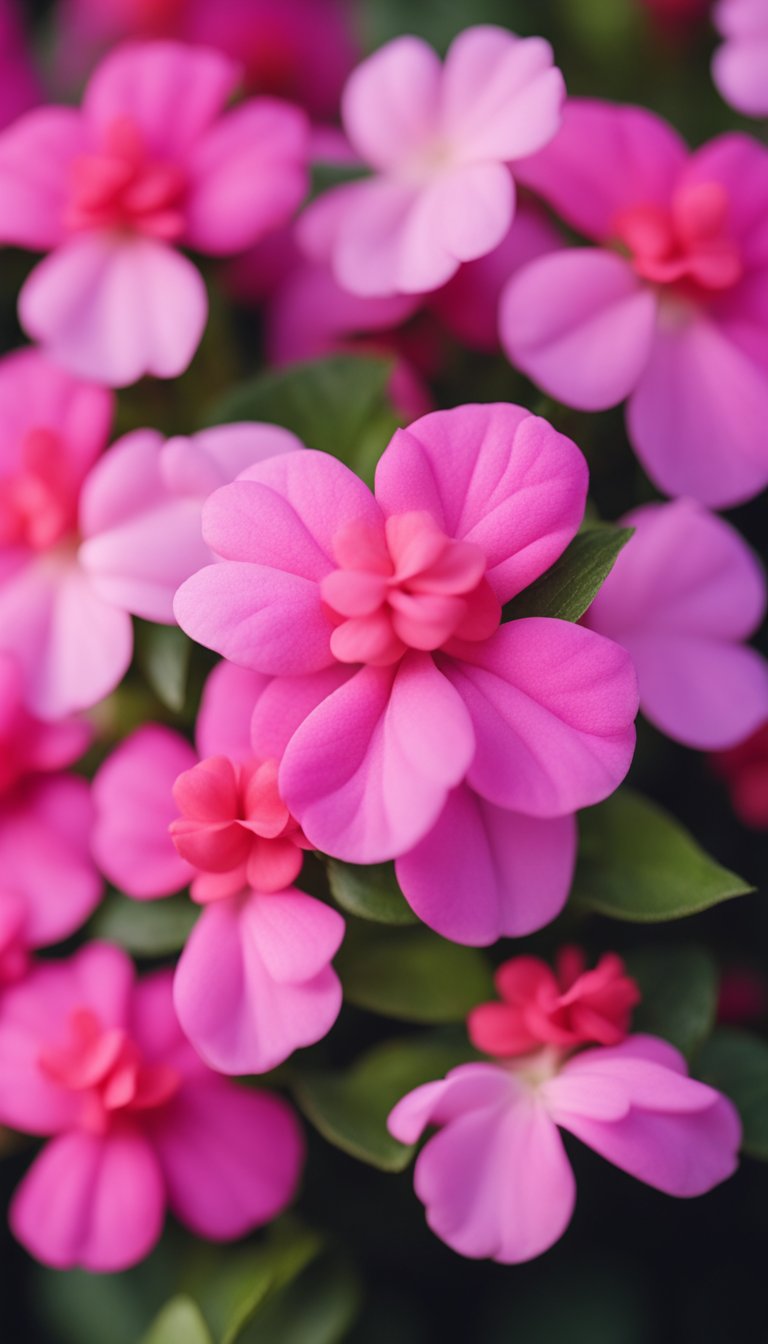
Sunlight and Shade Preferences
Impatiens do best in areas with partial to full shade. They can tolerate some direct sunlight, but too much can cause them to wilt or scorch. If you are planting them in a sunny area, be sure to provide some shade during the hottest part of the day.
Watering Needs
Impatiens require consistent moisture to thrive. Water them deeply and regularly, especially during hot, dry weather. Be sure to avoid getting water on the foliage, as this can lead to fungal diseases.
Caring for Impatiens
Impatiens are a popular choice for gardeners due to their vibrant colors and long blooming season. However, to ensure that they last as long as possible, it’s important to take proper care of them. Here are some tips for caring for your impatiens:
Fertilizing Practices
Impatiens are heavy feeders and require regular fertilization to thrive. You should fertilize them every 2-3 weeks with a balanced fertilizer, such as a 10-10-10 or 20-20-20. Be sure to follow the instructions on the fertilizer package, as over-fertilization can lead to burned roots and stunted growth.
Pruning and Maintenance
Regular pruning and maintenance are essential for keeping your impatiens healthy and looking their best. Pinch back the tips regularly to encourage bushier growth and more blooms. Remove any dead or yellowing leaves and flowers to prevent the spread of disease and pests.
Disease and Pest Management
Impatiens are susceptible to a variety of diseases and pests, including aphids, downy mildew, powdery mildew, and spider mites.
To prevent these issues, be sure to water your impatiens at the base of the plant rather than from above, as wet foliage can promote the growth of these problems. Additionally, consider using a fungicide or insecticide if you notice any signs of disease or pests.
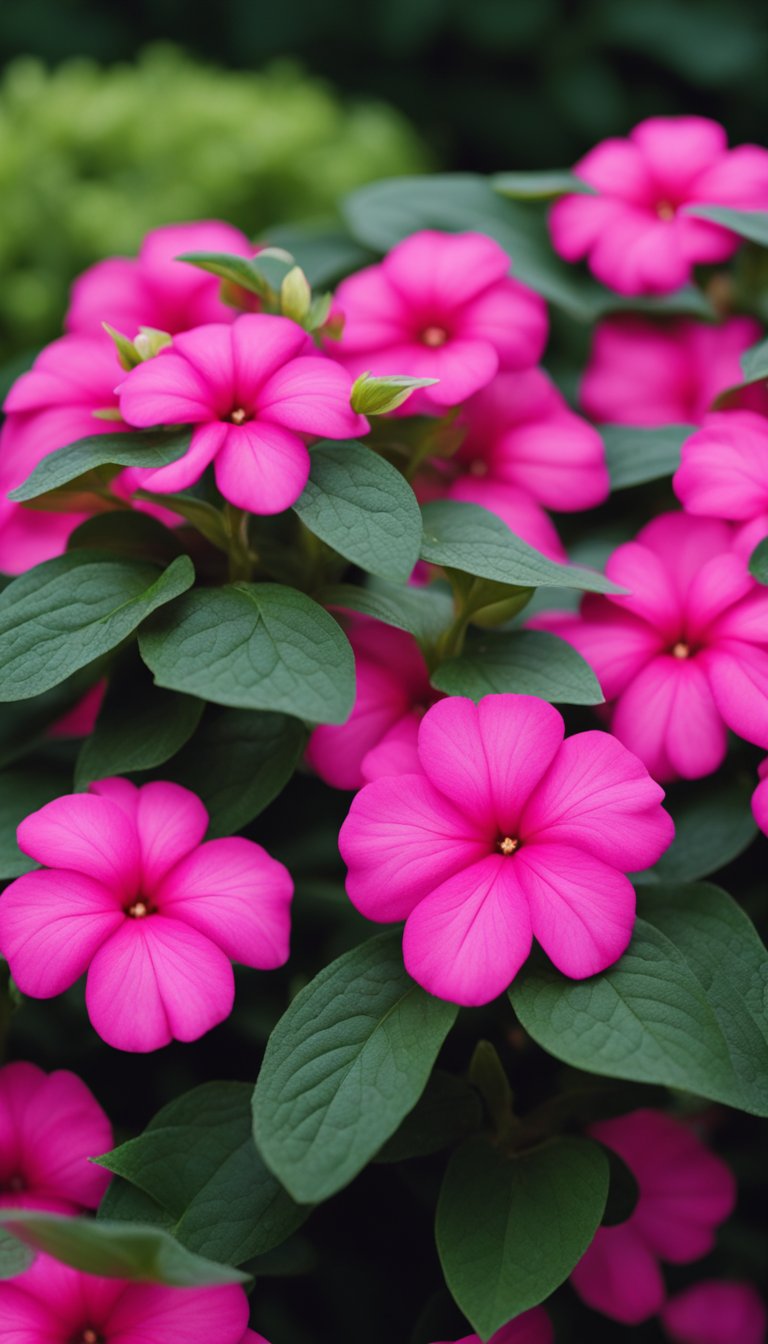
Propagation and Lifespan Extension
Impatiens are annuals that can be easily propagated from seed or cuttings to extend their lifespan and ensure they continue to bloom throughout the growing season. Here are some methods you can use to propagate and extend the lifespan of your flowers.
Seed Propagation
If you want to grow impatiens from seed, start by planting the seeds in a well-draining potting mix. Keep the soil moist and warm, and the seeds should germinate within a week or two. Once the seedlings have grown to a few inches tall, you can transplant them to your garden or a larger pot.
Impatiens seeds can be saved from year to year, so if you have a favorite variety, you can save the seeds and plant them again the following year. Just make sure to store the seeds in a cool, dry place until you’re ready to plant them.
Cuttings and Overwintering
Another way to propagate impatiens is by taking cuttings. To do this, take a cutting from a healthy, mature plant and remove the lower leaves.
Dip the cut end in rooting hormone and plant it in a well-draining potting mix. Keep the soil moist and warm, and within a few weeks, the cutting should start to grow roots.
If you live in a colder climate, you can overwinter your impatiens by taking cuttings in the fall and bringing them indoors. Keep the cuttings in a warm, bright location and water them regularly. In the spring, you can transplant the cuttings back outside.
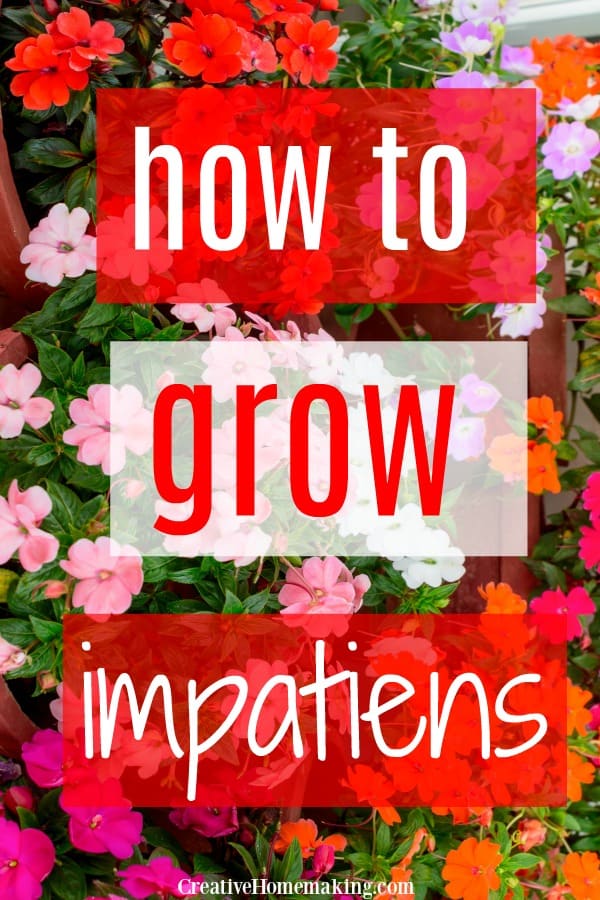
Frequently Asked Questions
What is the lifespan of impatiens flowers?
Impatiens flowers have a relatively short lifespan, typically lasting from 4 to 6 months. However, this can vary depending on the specific species and environmental conditions.
Can impatiens survive indoors throughout the year?
While impatiens can be grown indoors, they typically require a lot of light and humidity to thrive. It may be challenging to provide these conditions indoors throughout the year, so it is recommended to grow them outdoors during the warmer months.
How long will impatiens stay fresh in a vase?
Impatiens are not the best flowers for vases, as they tend to wilt quickly. If you do choose to put them in a vase, they will typically last for 2 to 3 days with proper care.
During the fall season, what is the expected longevity of impatiens?
Impatiens are sensitive to cold temperatures and frost, so their lifespan during the fall season can be shorter than during the summer months. However, if they are protected from the cold, they can continue to bloom until the first frost.
What are the tips for keeping impatiens blooming all summer?
To keep your impatiens blooming all summer, make sure to plant them in well-draining soil and water them regularly, especially during hot and dry weather. Fertilize them every 2 to 3 weeks with a balanced fertilizer, and deadhead them regularly to promote new growth and more blooms.
Follow my gardening board on Pinterest.
